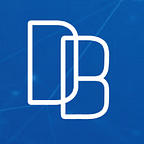Daily Bit #175: Gemini Keeps Twinning
Industry Updates
- Per data from OnChainFX, just 25 altcoins had more than 400 active addresses in the past 24 hours… yikes. More on the inactivity here.
- Nasdaq is developing a analytical tool for trading crypto assets.
- UAE officials punched through ICO regulations that will recognize tokens as securities.
- Accredited investors gained a new crypto investment product via First Block Capital’s (Vancouver) Bitcoin mutual fund.
- Bitmain joins 30 other crypto accounts in a censorship from messaging app WeChat.
Top Story
Gemini Keeps Twinning
Although news about Gemini’s stablecoin broke early yesterday, we’d risk doing a disservice to some of our readers by glossing over the fact today. It’s a huge development that will likely impact the way that exchanges, decentralized apps, and other parties engage with stablecoins from hereon.
So, let’s dive into it. Tyler and Cameron Winklevoss launched a stablecoin called the Gemini Dollar. The slogan on the product’s website cuts right to the chase: “U.S. Dollars on the Blockchain”. And the description “Send and Receive U.S. dollars like Email” is equally as plain and simple.
As for the U.S. Dollar component, remember that there are 3 different types of stablecoins:
- Fiat / asset collateralized (stable backing)
- Crypto collateralized (volatile backing)
- No collateral, aka algorithmic central bank
Gemini Dollars fall behind Door #1. Tether’s $USDT does as well… but there’s more to Gemini Dollars than shady Puerto Rican bank accounts and incomplete audits. Gemini Dollars were created with a long-term outlook in mind.
The Harvard gents know how this game is played:
- Approved by NY Dept. of Financial Services.
- USD reserves held by Boston-based State Street (~$2.8T AUM in 2017) in FDIC-insured account.
- Monthly third party audits by BPM Audit.
- Stablecoin code reviewed by security firm Trail of Bits.
Any concerns with Tether are put to bed with Gemini’s USD peg. And while some may argue that the product is simply a new and improved Tether (Preston Byrne called it “a coupon for USD held at a bank” — he’s not wrong), Gemini Dollars throw shade on stablecoin Options #2 & #3 that are more theoretical than the boring option of holding USD in reserves.
Or, in @loomdart’s words, “so 1 type of stablecoin and 2 types of ticking time bombs, I can see why people would be happy about more USD-collateralised coming into the scene.”
Unconventional “stablecoins” are a dime a dozen for that reason: nobody knows if they’ll work. Dollar-backed coins aren’t sexy, but as long as they’re covered 1:1, the peg isn’t going to go kaput.
That’s critical for centralized exchanges that process higher trade volume, and it’s a key reason why Tether still carries the lion’s share of the stablecoin market. No alternative has a cap large enough to eat the market’s volatility and come out flat.
Relatedly, decentralized exchanges/applications are a fitting testing grounds for unproven models. Call them the stablecoin kiddie pool. The former wants a working peg, the latter wants market share. A future where exotic stablecoins partner up with smaller platforms as a prerequisite for moving onto larger ones doesn’t seem too far fetched.
Or, they’ll opt for Gemini Dollars or make their own dollar-backed token. Will Warren (co-founder @ 0x) predicted that dollar-pegged stablecoins will eventually flood the market, and we expect regulations have a lot to do with that.
Added bonus? The entire market is de-risked from Tether (@TusharJain). If Tether’s business ever hits the fan, the majority of top exchanges have no alternative to turn to.
The bottom line: USD-backed stablecoins certainly aren’t decentralized, but they’re certainly not frowned upon by regulators or exchanges. Pick your battles.
Other News
Another One… Bittrex → Malta
Bittrex is the latest inductee to Malta’s blockchain haven with the launch of both Bittrex International and Bittrex Malta Ltd., a trading platform that will meet the regulatory requirements of the EU and the Maltese Government.
Malta’s prime minister calls the island’s fast & loose approach towards blockchain regulation a calculated risk. By all definitions, it’s working. Multiple companies now call Malta home through expansion efforts and partnered service providers, which allow them to skirt unsavory domestic regulations while benefiting from tax rates as low as 5 percent.
Some of the pilgrims:
- OKEx: digital asset exchange (announced April 2018)
- Coinvest: investment trading market (arrived April 2018)
- Yovo: blockchain-powered mobile network (announced June 2018)
- Neufund: equity fundraising platform (announced July 2018)
Matt Odell calls the movement ‘regulatory arbitrage’ since internet-native companies effectively station themselves wherever they please. So as long as Malta is willing to go there, companies will continue to, well… go there.
Days Without an Exit Scam: 0
PKG Token (PKG) used the Twitter handle @pokemongopkg to trick folks into believing they had ties with PokemonGo and had images on their website suggesting the same. PKG tanked over 70%, and most remaining trade volume is concentrated on decentralized exchange IDEX.
Quoting a Redditor, “their icon is a — — ing upside down pokeball inside another pokeball why did anyone buy this”…. good question. Don’t trust everything you see on the internet.
Brain Fuel
- 7 min read: The Coming Epic Battle Between Crypto and FAMGA (Lou Kerner)
- 8 min read: Video Games and Cryptocurrencies: A Perfect Marriage (Howard Marks)
- 10 min read: Tether’s hold on Bitcoin’s liquidity: A risk assessment (Hasu)
Where Else To Find Us:
Website: https://www.thedailybit.news/
LinkedIn: https://www.linkedin.com/company/the-daily-bit/
Twitter: https://twitter.com/thedailybitnews
